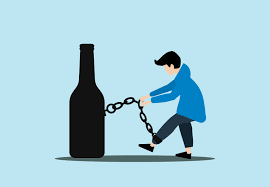
Understanding Alcohol Addiction and Effective Prevention Strategies
Introduction
Alcohol addiction is a widespread issue that affects millions of people worldwide, leading to a range of physical, mental, and social problems. This article aims to provide valuable information on alcohol addiction and prevention strategies. By understanding the root causes and implementing effective prevention measures, individuals, families, and communities can work together to combat this pervasive problem.
Table of Contents:
1. What Is Alcohol Addiction?
2. The Causes of Alcohol Addiction
3. The Consequences of Alcohol Addiction
4. Prevention Strategies
a. Education and Awareness
b. Responsible Drinking
c. Support Systems
d. Seeking Professional Help
5. Conclusion
1. What Is Alcohol Addiction?
Alcohol addiction, often referred to as alcoholism or alcohol use disorder (AUD), is a chronic disease characterized by an inability to control one's drinking despite negative consequences. It can lead to physical and psychological dependence on alcohol, making it difficult for individuals to function without it. Recognizing the signs of alcohol addiction is crucial for early intervention and treatment.
2. The Causes of Alcohol Addiction
Understanding the underlying causes of alcohol addiction is essential to effective prevention. While the exact cause can vary from person to person, some common factors include:
- Genetics: A family history of alcoholism can increase one's susceptibility to addiction.
- Environmental Factors: Growing up in an environment where alcohol abuse is prevalent can influence behavior.
- Stress and Trauma: People may turn to alcohol as a coping mechanism for life stressors or traumatic experiences.
- Mental Health Issues: Conditions like depression and anxiety can contribute to alcohol addiction.
- Social Pressure: Peer pressure and societal norms can encourage excessive drinking.
3. The Consequences of Alcohol Addiction
Alcohol addiction can have devastating effects on an individual's life and those around them. These consequences can include:
- Health problems like liver disease, heart disease, and cognitive impairment.
- Relationship issues with family, friends, and colleagues.
- Legal problems due to DUIs and other alcohol-related offenses.
- Economic hardships resulting from job loss and financial strain.
- Mental health issues such as depression and anxiety.
4. Prevention Strategies
Effective prevention strategies can help individuals avoid falling into the trap of alcohol addiction. Here are some key approaches:
a. Education and Awareness: Promoting awareness about the risks of alcohol abuse and addiction is essential. Schools, communities, and organizations should provide education on the consequences of excessive drinking.
b. Responsible Drinking: Encouraging responsible drinking habits can significantly reduce the risk of addiction. This includes knowing one's limits, drinking in moderation, and avoiding binge drinking.
c. Support Systems: Building strong support systems within families and communities can provide individuals with the emotional and social support needed to resist alcohol addiction.
d. Seeking Professional Help: For those already struggling with alcohol addiction, seeking professional help is vital. Rehabilitation centers, therapists, and support groups can provide the necessary guidance and treatment.
5. Conclusion
Alcohol addiction is a complex issue with far-reaching consequences, but it is not insurmountable. Through education, responsible drinking, support systems, and professional help, individuals can take steps to prevent and overcome alcohol addiction. By working together at the individual, family, and community levels, we can create a healthier and alcohol-responsible society.
If you or someone you know is struggling with alcohol addiction, please seek professional help immediately. Remember, recovery is possible, and support is available to help individuals reclaim their lives from the grip of alcohol addiction.
Like
Comment
Share